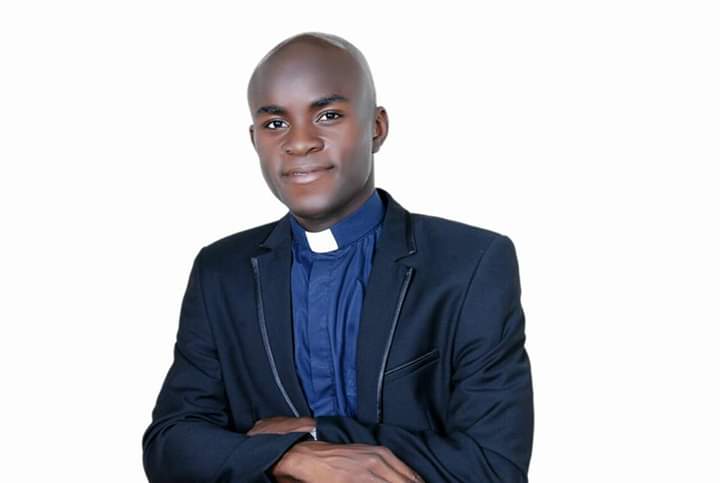Homilies & Reflections
Ash Wednesday: Homily by Rev Fr. Lucas Binnah Junior
First Reading: Joel 2:12-18/Responsorial Psalm: Psalm 51:3-4.5-6ab.12-13.14 and 17 (R. cf. 3a) Second Reading: II Corinthians 5:20-6:2/Gospel Accl.: Ps. 95:7.8/Gospel: Matthew 6:1-6.16-18
Theme: SPIRITUAL JOURNEY
Support us, Lord, as with this Lenten fast we begin our Christian warfare, so that in doing battle against the spirit of evil we may be armed with the weapon of self-denial. Through our Lord Jesus Christ, your Son, who lives and reigns with you and the Holy Spirit, one God for ever and ever [Breviary – Concluding prayer of Morning & Evening Prayer of Ash Wednesday]
The penitential season of grace is here. It is Lent, the period of forty (40) days of spiritual battle with the enemies of our salvation journey, so as to equip and prepare us for the glorious resurrection of Jesus Christ at Easter. It is also a period of renewal, where we are called to ongoing repentance, continual conversion and holiness of life. Ashes are put on our foreheads to symbolise our fragility, mortality as well as our need of divine grace without which we remain in our sinful-wretched state.
In the nascent stage of Christianity, the entire body of believers spent considerable length of days in the form of spiritual preparation for the purpose of accompanying those who were to be initiated into their fold through baptism. By the fourth century, this had been institutionalised making it forty days, what in Latin is called Quadragesima, that is forty. From Ash Wednesday till the end of Lent is actually made up of forty-six days, but since the Lenten fast does not include the six Sundays within the period, we are left with forty days – the well-known forty days of Lent! In fact, just as the Jews who were under Babylonian captivity for seventy-years, spent forty-six years in rebuilding the temple built by King Solomon which was destroyed by the Babylonians, so also, as Christians, we spend forty-six days in rebuilding the temple of the Holy Spirit – our bodies – which we have destroyed through sin. In reality, the number forty is very significant and biblically reflective of enough time of preparation for a new beginning. Both Moses and Elijah fasted for forty days (cf. Ex. 34:28; I Kgs. 19:8). Between his baptism and public ministry, Jesus followed this pattern and also fasted for forty days and forty nights (cf. Mt. 4:1-11; Mk.1:12-13; Lk. 4:1-13).
The human will is stubborn and can go against the divine will. When this happens, we fall into sin. On the other hand, when we surrender our will to the will of God, God’s will is done in our lives and we find blessings, favours, happiness, joy and fulfilment. For this reason, we need to learn how to control the flesh which tends to exalt the human will above the divine will. In this regard, God, speaking through Prophet Joel in the first reading tells us: “‘Even now,’ says the Lord, ‘return to me with all your heart, with fasting, with weeping and with mourning; and tear your hearts and not your garments” (Jl. 2:12). The spiritual exercises of fasting, prayer and alms-giving, whereby we acknowledge sincerely, our human frailties and sinfulness, are fitting remedies which lead to renewal and conversion. We are asked to ‘tear’ our hearts not our garments, to change from within, to purify our inner selves from where evil thoughts and actions proceed. As we do so, Jesus calls for genuineness. He asks us to practise charity, to pray and fast without hypocrisy. This is what today’s Gospel tells us. We fast not only from food, but also from anger, bitterness, anxiety, loquaciousness, complaints, hurtful words, grudges, selfishness, pride and other vices which eat away our souls. In place of these, let us embrace silence and contemplation which enable us to raise our hearts and minds to God. All too often, we try to impress people with external religiosity. This is false piety and does not receive favour and reward from God. True piety flows from a deep and inner conversion whose external effects demonstrate a true, genuine, humane and holy personality.
The question is not so much about what we have done wrong, where, how and when we did it. We are told, that no matter the stage or point we find ourselves in life, we should return to God. It must be now, not tomorrow or in the future! Our decision to return to God must not be postponed in any way! We must answer God with immediate effect. This is the favourable time, because, as mortal beings, today we are here, and tomorrow may not come our way. So, what we have is the present. Brooding over the past may not solve our problems. Thinking of future choices may not benefit us either. What is available to us is the present, and God wants us to make the best out of the ‘now.’ This is what the second reading affirms when it says: “At the acceptable time I have listened to you, and helped you on the day of salvation” (II Cor. 6:2). So, let us not receive the grace of God in vain. Instead, let us make every effort to reconcile with God, our neighbours and with the self.
In addition, abstinence, which is the act of refraining from eating meat is very much encouraged. It helps us to identify with Christ who shed his life’s blood for our redemption. Also, practising works of mercy or charity enables us to share the burdens of others, particularly, the needy and the poor. Nothing is too little or too much. We all can share our time, talents and treasures with others. Again, it is necessary and urgent to reconcile with those with whom we bear grudges. All too often, we offend and are offended by others. There is a lot of pain in our relationships – marriage, family, friendship, etc. We need forgiveness and healing so we can live together in justice, peace and harmony. Also, frequent reception of the sacrament of reconciliation (confession) keeps us in the atmosphere of deliverance, liberty, holiness, and spiritual awareness, alertness and protection
Beloved in Christ, we have the opportunity to repent, and it is the will of our God that we repent and turn back to him. God does not want anybody to die in their sin. He is not interested in that at all! Rather, he wants everybody to be saved and come to the knowledge of the truth (cf. Ez. 18:21- 23; I Tim. 2:4). We should be humble in mind and be bold to banish anger, pride and arrogance from our lives. As we embark on this forty-day spiritual journey, let us fix our eyes on Jesus, the author and finisher of our faith. He will strengthen us to carry our crosses to the Calvary of victory. Lent is a time for renewing faith, hope and love. This Lent, let us try to achieve one good thing, one thing we would never regret ever doing. May the Holy Spirit come to our aid, so to experience a spirit-filled Lent. May God richly bless us! Remember, we are on a: #Spiritual-Journey#
Let us pray: Grant O Lord that we may begin with holy fasting this campaign of Christian service, so that as we take up battle against spiritual evils, we may be armed with weapons of selfrestraint. Through Christ our Lord who lives and reigns with you and the Holy Spirit, one God for ever and ever. Amen!
Sharing is caring!
Ghana Catholic News aim to provide up to date news on the Catholic Church in Ghana on various disciplines such as diocese, priesthood, programs/events, promoting of the Catholic faith, daily readings, homilies, Catechism, etc.





